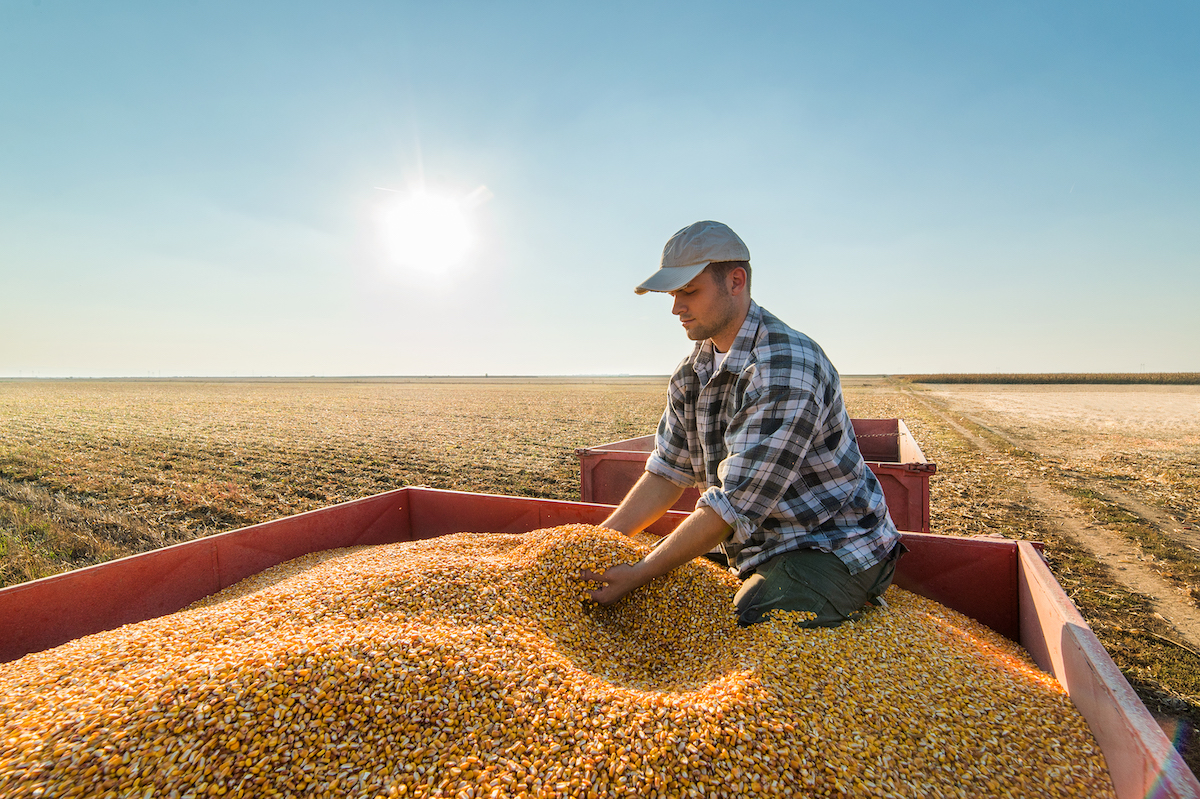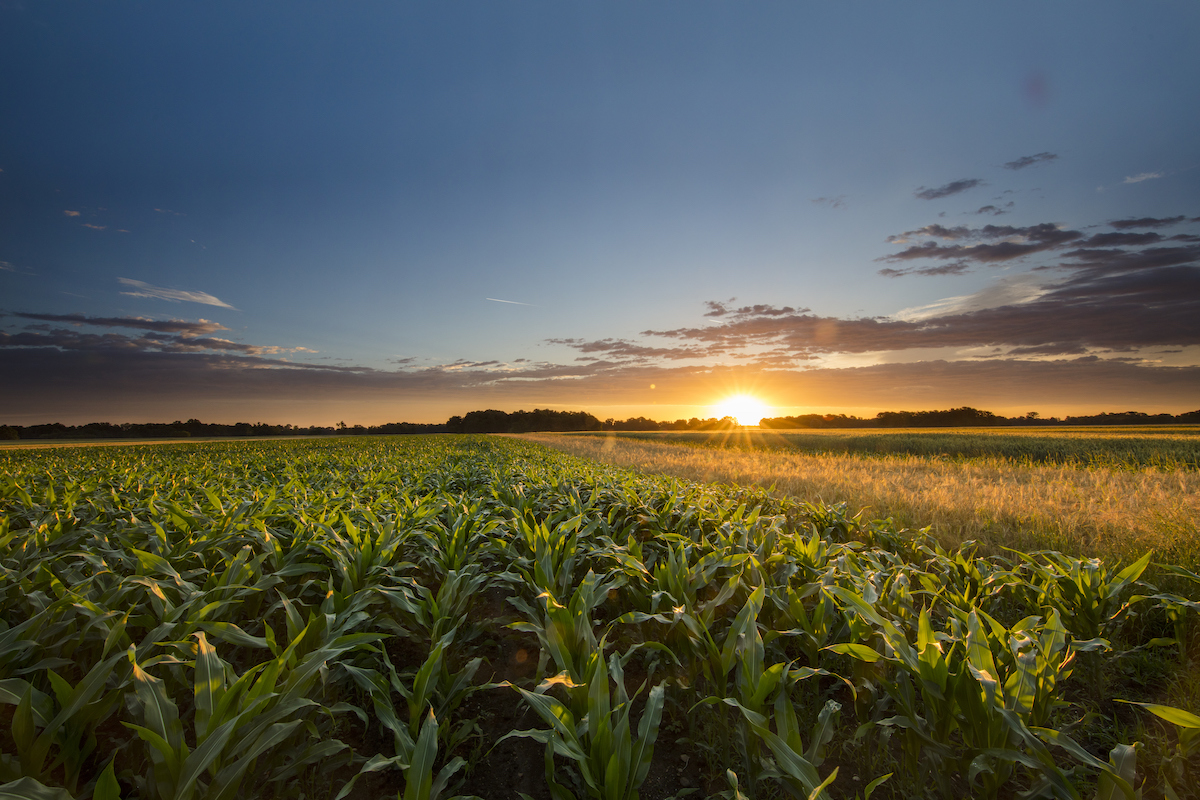Our world today faces unprecedented environmental challenges. Although progress has been made in recent years, we remain far from reaching the goals we have set as a society to halt the damage from our reliance on fossil fuels.
At POET, we believe biofuels can help get us there, providing important emission reductions for transportation, which is one of the most polluting sectors of the global economy and one seeing some of the slowest progress.
A renewed push for growth in agriculture and biofuel production would put many of our climate goals within reach, and it can be done by tapping into the potential of nations around the globe – using underperforming cropland and farmers eager to participate in better markets for grain and biomass.
The Challenge: Climate Change
Climate change mitigation is the largest international effort of the 21st century, prompting annual meetings of international leaders of government, business, science, economics and more. It has changed how businesses operate and sparked new industries. It affects every person on the planet.
Transportation has the highest reliance on fossil fuels of any sector.
The goals that have emerged from these efforts are noble, but we are lagging in reaching them.
While all sectors need to make more progress, the transportation sector remains a particular problem. According to the International Energy Agency, transportation has the highest reliance on fossil fuels of any sector, accounting for 37 percent of CO2 emissions in 2021.
Bioethanol: The Low-Carbon Alternative
Bioethanol is often overlooked as a tool for reducing emissions, despite its significant achievements in the United States transportation fuel market.
Bioethanol, on average, lowers emissions by 46 percent compared to gasoline, reducing emissions by 54.5 million tons in 2021 in the United States alone. In addition, bioethanol significantly reduces the need for toxic aromatic hydrocarbons such as MTBE and benzene.
The Paris Agreement calls for reducing emissions by 20 percent by 2030. While some advocates focus solely on electric vehicles to meet reduction targets, simple math shows that the world needs a liquid fuel solution that works in existing internal combustion engines.
Bioethanol is the best way to lower emissions in the world’s vehicle fleet.
There are 278 million cars and light-duty trucks in the United States and 1.45 billion vehicles worldwide. About 99 percent of the United States fleet and 99.5 percent of the world fleet run on internal combustion engines. The average age of cars and light trucks in the United States is 12.2 years, and nearly every vehicle coming off the assembly line today will still be on the road in 2030 and well beyond.
To reach reduction goals by 2030 and 2050, there must be a solution that works for these vehicles.
Bioethanol is the best way to lower emissions in the world’s vehicle fleet. By increasing our use of bioethanol in the fuel supply, we can make real progress toward our climate goals.

Room to Grow
According to an analysis from the United States Department of Agriculture, in 2018, world bioethanol usage was 27.6 billion gallons out of a total 403 billion gallons of motor gasoline consumption. The United States and Brazil together were responsible for 22.3 billion of those gallons.
Outside of those two countries, bioethanol is about two percent of the gasoline supply worldwide.
This is despite the fact that many countries have bioethanol blending targets. These targets are not being met in most countries, and there is little being done to enforce them. This gap represents an opportunity for dramatic progress in lowering carbon emissions.
If the rest of the world simply met its bioethanol blending targets, bioethanol use would increase to 36.9 billion gallons by 2030, or more than 50 billion gallons if the United States maintains its current blend amount.
The Solution: Invest in production
We’ve long understood the phenomenon of ‘food dumping’, where the introduction of cheap, subsidized grain from the United States and Europe devastates local farmers in developing countries and eliminates their ability to produce a profit.
Conversely, strong markets for grain promote investment in agriculture around the world.
Investments in bioethanol production worldwide to meet existing fuel blending targets would create the market demand needed for profitable agriculture in developing nations.
Investments in bioethanol production worldwide to meet existing fuel blending targets would create the market demand needed for profitable agriculture in developing nations.
In addition, by utilizing more efficient and sustainable farming practices on existing cropland worldwide, we could create markets that spur investment in agriculture and boost the production of lower-carbon food and fuel.
To reach these outcomes, it will take coordination between the public and private sectors in both developed and developing nations.
- Governments should recommit to enforcing their existing goals for bioethanol use.
- Developed nations must invest resources to help farmers maximize sustainable cultivation of their land to reach its full potential.
- Bioethanol producers must work with other nations to modernize local bioethanol capabilities.
This is certainly achievable. The framework is in place for better utilizing agriculture and bioprocessing, and the technology and expertise exist to make them more environmentally sustainable than ever. With such an effort, our world could boost food and fuel production and help the transportation sector meet carbon targets.
We can grow our way out of climate change. The world just needs to learn that agriculture is the key.
About POET: POET’s vision is to create a world in sync with nature. As the world’s largest producer of biofuel and a global leader in sustainable bioproducts, POET creates plant-based alternatives to fossil fuels that unleash the regenerative power of agriculture and cultivate opportunities for America’s farm families. Founded in 1987 and headquartered in Sioux Falls, South Dakota, POET operates 33 bioprocessing facilities across eight American states and employs more than 2,400 team members. With a suite of bioproducts that includes high-quality animal feed, corn oil, green asphalt rejuvenator, purified alcohol and renewable CO2, POET nurtures an unceasing commitment to innovation and advances powerful, practical solutions to some of the world’s most pressing challenges. Today, POET holds more than 100 patents worldwide and continues to break new ground in biotechnology, yielding lower-carbon, more efficient renewable energy and products. In 2023, POET is celebrating its 35th anniversary and has released a short film, ‘A Vision and Beyond: The Story of POET’, detailing its history.







